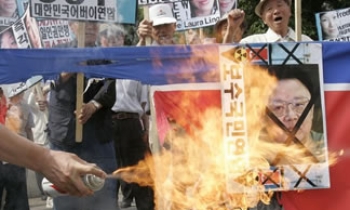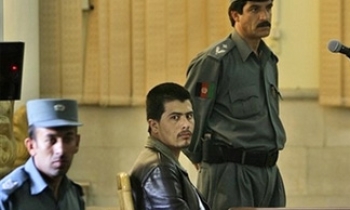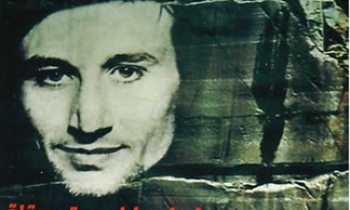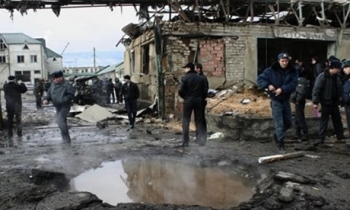Media freedoms have eroded even in some of the world's most established democracies, media advocacy groups said as they prepared to mark World Press Freedom Day on Wednesday.
The 16th annual observance comes as many journalists face legal restrictions, intimidation and even violence, although freedoms have increased in some countries.
The U.S. military's detentions of journalists without charge in Iraq and the jailing of a New York Times reporter for her refusal to identify a confidential source have some worried that even the United States, a country often viewed as a model for free expression, is cutting back press liberties.
Since last May 3, the world also has witnessed the fury unleashed by the publication of caricatures of the Muslim Prophet Muhammad by a Danish newspaper, as well as government crackdowns in countries including the Philippines and Nepal.
Forty-three percent of the world's population is currently living in countries that lack a free press, according to a global survey of media freedom released April 27 by the Washington-based Freedom House. Of the remaining 47 percent, the survey said, only 17 percent live in countries where the press is free, while the rest reside in a "grey zone of partial media freedom."
A look at some of the most significant events and controversies since last May:
Afghanistan: The editor of a women's magazine was jailed in October for publishing articles deemed anti-Islamic. An appeals court ruling led to his release but the case underlined the fragility of press freedoms in the country's nascent democracy.
Iraq: The group Reporters Without Borders said that Iraq remains the most dangerous country in the world for journalists, with at least 86 media workers killed and 38 kidnapped during three years of war. The Committee to Protect Journalists identified seven cases in which U.S. forces in Iraq detained journalists for prolonged periods without charge in 2005.
Mexico: The Mexican Congress enacted a law April 18 allowing journalists to protect the confidentiality of their sources. The so-called Professional Secrecy Act lets reporters shield their sources in federal court, and is the latest in a series of laws supporting press freedom that have been introduced since Mexico restored multiparty democracy in 2000.
Nepal: Government infringements on press freedom after King Gyanendra seized absolute power in February 2005 included a ban on FM radio news stations, the blocking of anti-government Web sites and the seizure of broadcast equipment.
The king reinstated Parliament on April 24, but it remains to be seen whether the changes will improve the climate for the country's journalists.
Philippines: President Gloria Macapagal-Arroyo invoked emergency rule on Feb. 24 and accused the media of inciting people to topple her government. Police later raided the office of a pro-opposition newspaper. Though Arroyo lifted the emergency rule on March 3, local and international media groups say press freedoms in the country are still at risk.
United States: New York Times reporter Judith Miller was jailed for 85 days, starting last July, for refusing to identify a confidential source in the CIA leak investigation. Courts mostly upheld a series of subpoenas issued in probes of leaks of classified information.
Two House of Representatives Republicans introduced a federal shield bill last year that would protect reporters who refuse to identify their sources, but it has yet to move out of committee.
Worldwide: A Danish newspaper's publication of caricatures of the Prophet Muhammad in September sparked a wave of outrage among Muslims around the world. At least 45 people died in protests, according to an Associated Press tally, and anger over the cartoons led to vandalism, boycotts of Danish goods and attacks on European embassies in several Asian and Arab countries.









